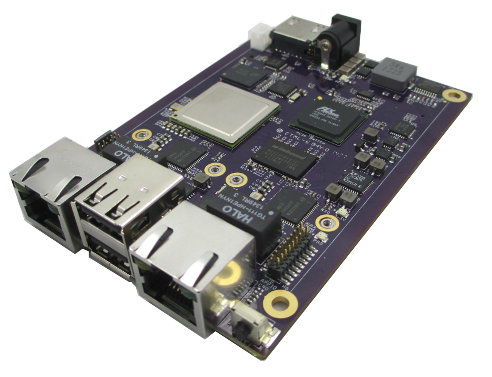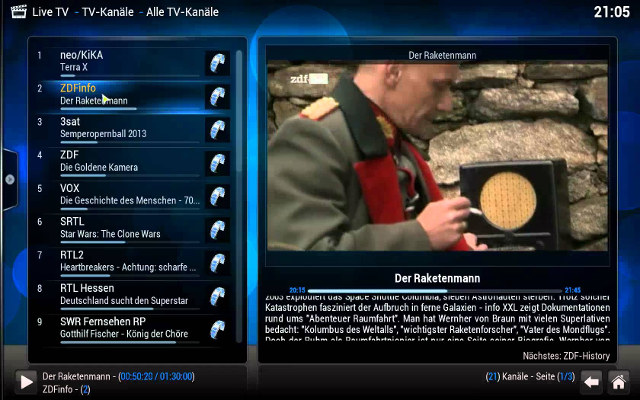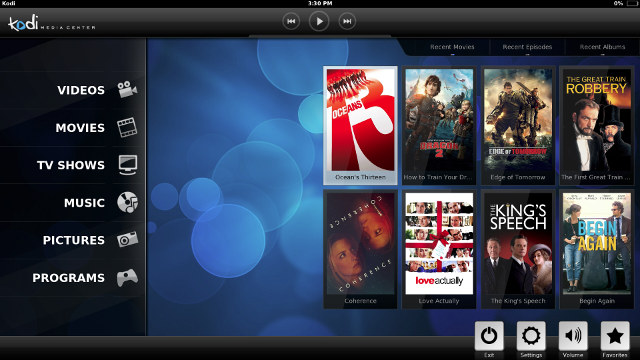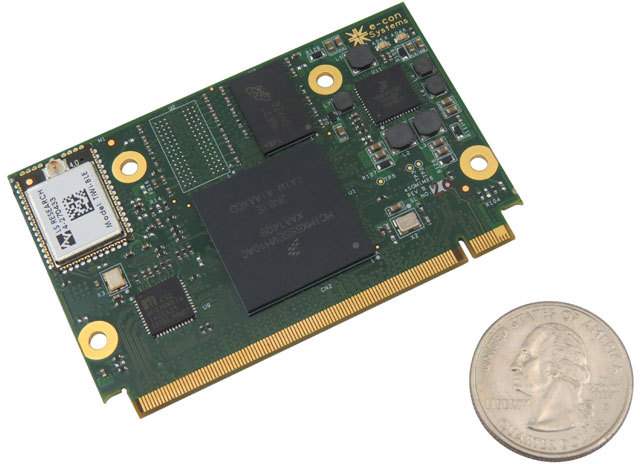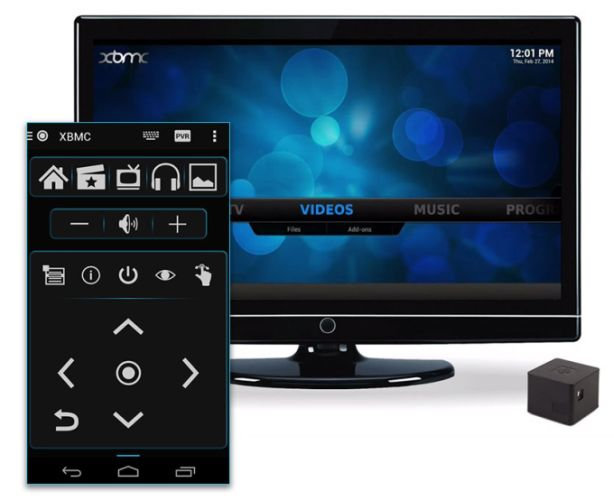If you need industrial grade ARM Linux boards with lots of Ethernet ports and several mini PCIe slots, you may want to check out Gateworks Ventana boards. The company has now released a smaller member of Ventana family with GW5520 SBC powered by Freescale i.MX6 dual, with two Gigabit Ethernet port, two mini PCIe slots, and support for PoE. Gateworks Ventana GW5520 SBC specifications: SoC- Freescale i.MX6 Dual Cortex A9 processor @ 800MHz with Vivante Vivante GC2000 / GC355 / GC320 GPUs. Option: i.MX6 Quad System Memory – 512 MB DDR3-800 SDRAM (Up to 2GB RAM as option) Storage – 256 MB Flash (Up to 2GB as option), serial configuration EEPROM Video and Audio Output – HDMI 1.4 Connectivity – 2x Gigabit Ethernet ports. USB – 2x USB 2.0 host ports Expansion 2x Mini-PCIe sockets Optional mini-PCIe socket to supports a mSATA disk drive (i.MX6 Quad only) I/Os Serial – […]
FOSDEM 2015 Schedule – January 31 – February 1 2015
FOSDEM (Free and Open Source Software Developers’ European Meeting) takes place every year during the first week-end of February. This year the developer-oriented event expects to bring over 5000 geeks to share ideas and collaborate on open source projects. Contrary to most other events, it’s free to attend, and you don’t even need to register, just show up. FOSDEM 2015 will take place on January 31- February 1 in Brussels. There will be 551 sessions divided into 5 keynotes, 40 lightning talks, 6 certification exams, and with the bulk being developer rooms and main tracks, divided into 7 main tracks this year: Languages, Performance, Time, Typesetting, Hardware, Security and Miscellaneous. I’m not going to attend, but it’s still interested to see what will be talked about, and I’ve concocted my own little virtual program out of the main tracks and developers’ rooms. There’s a few minutes overlap between some talks […]
Top 10 Posts of 2014 and Stats on CNX Software
Wow! After a slow start of the year, 2014 has been a busy year as new devices based on newer processor from Amlogic started to flood the market in Q2, soon followed by even more Rockchip RK3288 based media players, and then some more Amlogic S805 and Allwinner A80 boards and devices. It’s now the last day of the year, so just like in 2013, it’s time to look back on the main trends of the year, and based on the list of the top 10 most visited posts below, the new generation of ARM Android media players were the most important story of the year on CNX Software, but we also saw more IoT devices and board like Vidonn X5 or LinkIT One, lots of new Wi-Fi modules, and by the end of the year ESP8266 seemed to have won that fight, but being found in $3 Wi-Fi modules. […]
OpenELEC 5.0 Linux Distribution Released with Kodi 14
OpenELEC (Open Embedded Linux Entertainment Center) is a lightweight Linux distribution aiming at turning your computer or device into a Kodi media center. So instead of installing Kodi as a program or app on a desktop OS or Android, you could have a dedicated machine, which boots faster, has lower requirements (90-125 MB required for a full installation), and supported external tuners to watch live TV, as well as PVR & timeshifting functions out of the box. The developers have now announced OpenELEC 5.0 release, the successor of OpenELEC 4.2. Key changes for OpenELEC 5.0 include: Update from XBMC 13 (Gotham) to Kodi 14 (Helix) Update from Linux 3.16 to Linux 3.17 Switch from OpenSSL to LibreSSL Freescale i.IMX6 support for SolidRun CuBox-i, CuboxTV, and Hummingboard AppleTV support has been discontinued Beside build for the CuBox devices, OpenELEC 5.0 can be downloaded for x86 (32- and 64-bit builds), and the […]
Kodi 14.0 Helix Release
XBMC (name) is definitely dead, as developers of the popular open source “entertainment center” project have announced the first stable Kodi release – the new name of XBMC – with XBMC 14.0 Helix. Key changes and new features include: Update to FFmpeg 2.4.4 – Adds H.265 / HEVC and VP9 video codecs support. Software decode only. Library Improvements – Scanning speed greatly improved, better UPnP support including with PlanOn and MediaBrowser servers. New Configuration features – Add-on update controls, choice of virtual keyboard layouts for tablets and remote control users in order to support multiple languages. Android, iOS and Embedded – 4K support for Amlogic S802, more ARM SoCs are now supported in Android, fast forward/rewind improvements. Airplay support fixed, except for Android. Freescale i.MX6 support for Kodi Linux. Windows, OSX, and Linux – Audio playback improvements. DXVA video playback has been improved for Windows too. A critical Kodi Linux […]
Linux 3.18 Released
Linus Torvalds released Linux Kernel 3.18 last Sunday: It’s been a quiet week, and the patch from rc7 is tiny, so 3.18 is out. I’d love to say that we’ve figured out the problem that plagues 3.17 for a couple of people, but we haven’t. At the same time, there’s absolutely no point in having everybody else twiddling their thumbs when a couple of people are actively trying to bisect an older issue, so holding up the release just didn’t make sense. Especially since that would just have then held things up entirely over the holiday break. So the merge window for 3.19 is open, and DaveJ will hopefully get his bisection done (or at least narrow things down sufficiently that we have that “Ahaa” moment) over the next week. But in solidarity with Dave (and to make my life easier too 😉 let’s try to avoid introducing any _new_ […]
e-con Systems Unveils eSOMiMX6 SoM based on μQ7 Form Factor, and Ankaa Development Kit
QSeven is one of the many standards for system-on-modules, and it defines both Qseven (Q7) 70x70mm modules, and smaller μQSeven (μQ7) 70x40mm modules. While there are quite a few SoMs following the larger form factor, few modules are based on micro Q7, and e-con Systems eSOMiMX6 has just launched one of these tiny modules with eSOMiMX6 system-on-module powered by Freescale i.MX6 processors, as well the corresponding Ankaa development kit comprised of the SoM and a baseboard. eSOMiMX6 module specifications: SoC – Freescale i.MX6 single, dual or quad Cortex A9 processor @ 800MHz to 1.2 GHz with Vivante GPUs System Memory – 256MB/512MB (Solo only), 1GB (default), or 2GB (dual/quad only) LVDDR3 RAM Storage – 4GB (default) to 64GB eMMC flash, 2MB SPI NOR flash, and SD/MMC + SATA II interfaces via MXM connector Display / Video Output: HDMI up to 1920 x 1080 Dual channel 24-bit LVDS 24-bit LCD RGB MIPI […]
CuBoxTV is a $100 OpenELEC TV Box Powered by Freescale i.MX6 Quad SoC
Last year, Solidrun launched their Cubox-i mini PCs powered by Freescale i.MX6 single, dual or quad core processor, and running Debian, OpenSUSE, Android 4.4, or various XBMC based Linux distributions. The company has now announced a new product called CuboxTV, that on surface looks similar to their Cubox-i4Pro mini PC with a quad core processor, but instead of running Linux desktop distributions, or Android, it’s pre-loaded with OpenELEC Linux distribution running Kodi 14. CuboxTV specifications: SoC – Freescale i.MX6 Quad with four Cortex A9 core up to 1GHz, and Vivante GC2000 3D GPU System Memory – 1GB SDRAM @ 1066 MHz Storage – 8GB internal storage + micro SD interface Video Output – HDMI 1.4b, 3D support Video Decoders – MPEG-4 ASP, XVID, H.264 HP, H.263, MPEG-2 MP, MJPEG BP, VP8, Sorenson-H263. Video Encoders – MPEG-4 SP, H.264 BP, H.263, MJPEG BP Image Codecs – JPEG, BMP, GIF, PNG. Audio […]


